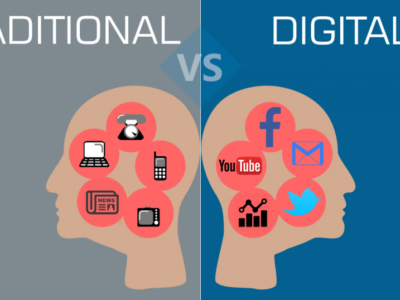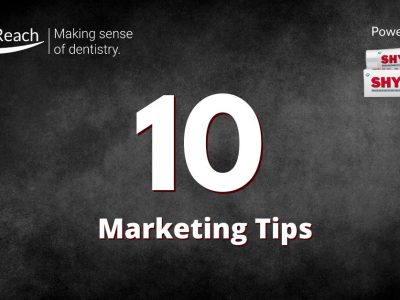– Team DentalReach
Abstract
The principles of the formation of teams of different dental specializations are considered. These principles are based on the context of modern technologies and competition. Six principles of building a team of dental professionals are explained.
Let us emphasize: we are talking about a creative ensemble of high-class specialists. This, as they say, is piece goods in commercial medicine!
1. The principle of voluntary participation in a team.
Voluntary participation presupposes specific motivation, that is the doctor is driven by:
- his/her professional interest
- the desire to obtain the best end results
- the desire to maximize his/her knowledge and skills in an ensemble of top-class professionals.
A volunteer in a team is a specialist who gets satisfaction from achieving a synergistic effect, that is, by adding up the professional efforts of all team members.
2. The principle of congeniality in team selection.
Congeniality (from Latin conj – with, together and genius – spirit) – means similarity in spirit, abilities, giftedness, way of thinking.
Doctors unite on the basis of similarities and even coincidences of spiritual values, way of thinking or talents. Only under this condition there is a value-orientational unity of a small team, as well as a resource of positive mental energy, which has a beneficial effect on team members and patients.
A multidisciplinary team based on the congenial principle must meet the following criteria:
- Everyone is a master of his craft, a specialist with a capital letter. If even one turns out to be a mediocre doctor, the patient will easily discover the flaw – the “law of contrast” will work, and the authority of the team will be in question.
- Everyone is fascinated by the idea of cooperation with colleagues of a high professional level, where collegial creativity and the achievement of a new, higher quality of the final product due to a synergistic effect becomes possible.
This is an ensemble of like-minded people who are united by general and specific principles of diagnostics, treatment planning and preventive measures.
These are people who are close in moral values, for whom the quality of treatment and the patient's well-being are higher than material interests and personal ambitions. These are specialists who are ready to jointly form the patient's ideas about the quality of services and manage these ideas. These are psychologically compatible partners who are able to support each other, and not assert themselves.
These are specialists who trust each other, who know how to reckon with each other's opinions, make concessions, and are ready to delegate the functions of a leader to someone from the team members. This leader will coordinate the team's actions, evaluate the quality of work of colleagues, explain to the patient the meaning of events, close the main the volume of communication at the clinical and postclinical stages of interaction with the patient.
These are doctors who are ready to sacrifice their interests for the sake of the patient – to make additional efforts, spend more time on communication, provide discounts, and reasonably increase guarantees.
It should be noted with great regret that in some clinics "teams" of specialists are being created, in which congeniality – the unity of spirit, the way of thinking – is turned not in favor of the patients, but is aimed at achieving commercial success.
Case example: A large system of dental clinics advertises: “Get prosthetics in 1 day. Complete restoration of all teeth in one day! The denture will not slip or shift in the mouth! Does not affect taste. Service life 15 years".
In all likelihood, in such an attractive form, implant supported dentures are being advertised. However, the advertising hides the "subtleties" of the approach to prosthetics, creating the illusion of a fabulous solution to the patient's problem.
But here’s why this is an example of bright minds doing dark things. This ad, put together by a team of dental doctors, poses certain questions:
- Will the participation of several narrow specialists be required to make diagnosis?
- Is it not necessary to first treat the preserved teeth or eliminate periodontal problems?
- Is there a need for preliminary preparation of the oral cavity, bone grafting surgery (lifting the maxillary sinus floor, bone ridge augmentation)?
- Are there any absolute contraindications for implantation (chronic blood diseases, age under 18, pregnancy)?
- Are there any relative contraindications (diabetes mellitus, heart defects, pathology of the immune system, cardiovascular diseases, AIDS, cancer, blood clotting disorders)?
- Don't you need hygienic cleaning obligatory before any dental procedure?
- Is it not necessary to make sure that the implants have osseointegrated before installing the prosthetic structure?
- Are follow-up examinations scheduled after their installation?
- What does 15 years of service of prostheses mean – does the term depend on the age, general health of the patient, clinical situation in the oral cavity, or do these factors play no role? Or will the design be changed during the specified period whenever something is wrong?
- Is there evidence of long-term effectiveness of one-day prosthetics and patient responses?
The problem: It is possible to place four implants and a prosthetic structure in a day with the risk of obtaining a small percentage of satisfactory long-term results, but it is entirely case dependant. As you can see, the announced advertisement ignores all the prerequisites for an individual approach and cancels the protocols that ensure the effectiveness of dental implants. It seems that the setting of a denture is easier than putting on contact lenses!
During consultations, the experienced and responsible specialists will talk differently : “Yes, in certain clinical conditions it is possible to put implants and prostheses in a day. But in your case, it is necessary to conduct a complete general and dental examination in order to identify the presence of contraindications, the need for sanitation of the oral cavity, professional teeth cleaning. It is necessary to conduct a study of bone tissue based on the study of an X-ray and CT scans. This is necessary both for assessing the state of the jaw bone tissue and for choosing the right implant. The matter will not be limited to one day. You have to pay for this and for that … "
And then the client will realize: "I was lured to the clinic with a miraculous healing in one day approach, and now it is being promoted to an expensive and long-term treatment."
The solution: Add just one line to the advertisement, which will remove the impression of deception: "The placement of implants and prosthetic structures is carried out only after thorough preparation of the oral cavity, which will take additional time".
Experience shows that a significant proportion of patients require preliminary preparation of the oral cavity and delayed prosthetics on implants. From a conversation with a patient who received implants traditionally: “This procedure is treated responsibly here. Before performing prosthetics, we checked how the implants took root for six months ”.
Responsible doctors do not want to form a negative image, do not want to return money in case of complications and have legal problems with patients, therefore they work taking into account clinical and biological aspects, switch to the classical scheme: carry out the necessary preparation of the oral cavity, place the implant(s), a 3 months wait for the engraftment results, then prosthetics.
3. The principle of flexible role distribution.
In accordance with this principle, each team member is ready to take on the responsibilities of a leader in one clinical situation, and in another – to play the role of an ordinary team member. First of all, this applies to doctors who have good communication and organizational potential. Recall that the team includes doctors, each of whom is a Specialist with a capital letter, and if one of them is constantly in the lead, while others will always play the role of followers, the ensemble will become unstable.
4. The principle of self-control.
The team sets itself the criteria for excellence and implements them. This concerns the quality of treatment, general cultural and medical services, and the requirements of medical ethics.
The team should independently evaluate the results of each submitted work, which corresponds to the idea of intraclinical quality examination, which is approved in modern private dentistry.
Involvement of outside authorities or experts in resolving conflicts with patients and considering unsatisfactory treatment results is an anomaly in the team's work.
The team's self-assessment of work quality is a good advertising move that meets the needs of the recipient of the services.
5. The principle of law abidance.
The team of specialists should act strictly in accordance with the rights of patients as recipients of medical care and as consumers of services. Professional excellence cannot serve as a basis for ignoring the legal aspects of providing paid services, on the contrary, strict adherence to the law should be the team's strong point, which provides it with a competitive advantage.
All team members must be well aware of the laws for the provision of paid services, take them to strict action, be able to operate with the documents accompanying the patient in the clinic: this is an agreement for
- the provision of services
- informed voluntary consent to medical intervention
- a statement of guarantees
- a patient's health questionnaire
- a medical record.
Discrepancies or shortcomings in working with these documents, as practice shows, significantly undermine the authority of dentists.
Law abidance also means that all team members must understanding advertising and think of it on a common ground.
With reference to the above case example, the function of that advertising was clear: to lure a person to the clinic, and then the implantologist and prosthodontist will act according to the situation. A naive patient will be supplied with a prosthesis – this sales technology is called ‘sniffing’. Some novice dentists, who are not faced with the problems of low-quality implants, allow themselves to use it. At the same time, informed voluntary consent to treatment is drawn up in such a way that the staff is not responsible for its results, the patient is warned about possible failures and that the money will not be returned to him. It seems that both sides are satisfied, but when the patient is faced with the fact of unsuccessful implantation and prosthetics, he realizes that he has lost money and complicated his situation.
Self-respecting specialists must now allow the management of clinics to include themselves in publicity stunts. Why should they be involved in belittling the prestige of private dentistry where the boomerang effect is guaranteed? The team leader must hold some accountability for the respectful treatment of his dental team, and it must be a united effort from the entire team.
6. The principle of a reasonable increase in working costs by improving work quality and increasing guarantees.
A team of professionals is created in the name of the quality of treatment and reasonable guarantees. This idea needs to be conveyed to the patient's consciousness by means of external, internal and interactive marketing. Marketing campaigns should be designed to explain to potential and real patients the axiom: a creative ensemble of specialists of different profiles will cope with a complex problem. The work of a team of top-class specialists is a specific and expensive dental service that a patient can choose. Its high cost is justified precisely by the guarantees of
- quality
- reliability
- convenience
- durability of using the results of the work performed.
Consequently, only those doctors who are ready to take on increased obligations regarding the quality of treatment at all its stages have the right to join the team of professionals.
Summary of Part 2: 6 principles of building a dental dream team of professionals
The presence of real teams of highly qualified and well-trained specialists is the true wealth of the clinic, its bright competitive advantage. A dental dream team can be built on 6 pillars:
- voluntary participation in a team
- congeniality in team selection
- flexible role distribution
- self-control
- law abidance
- a reasonable increase in working costs by improving work quality and increasing guarantees.




















Comments